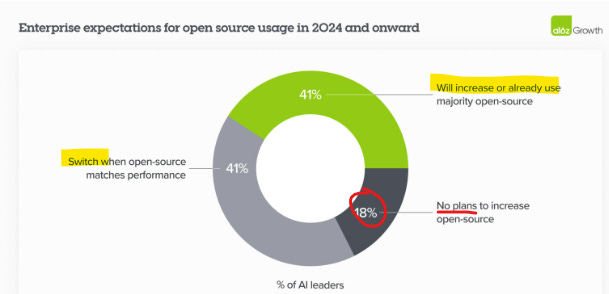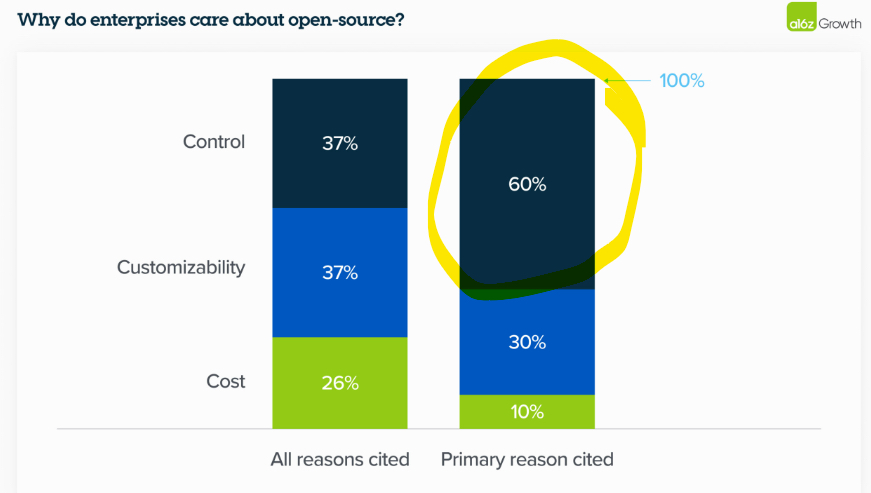
AI Is Not Here, For It Is Risen (In Price)
Everything that mattered last week—and a few things that didn’t
March 31, 2024
Sponsored By: Plumcat Animation Studio
This essay is brought to you by Plumcat Animation Studio, the animation partner for ambitious founders. We understand the challenges you face in a crowded digital marketplace. That's why our state-of-the-art interactive demos for SaaS don't just catch the eye—they captivate, boosting user engagement and shining the best light on your product. Transform your online presence into an immersive digital journey. Make the smart choice to ensure your brand doesn't just get noticed—it gets remembered.
Happy Sunday, and happy Easter! In Evan’s family, there is a long tradition of terrible un-funny Easter puns. So, with our apologies, here's one he made up and insisted on putting in this newsletter:
What do you call an Easter Bunny who loves virtual reality? The VR-abbit!
Again, we apologize. We promise the rest of this link roundup is better. Enjoy.
Our stories
“How to Make Millions on Discord” by Evan Armstrong/Napkin Math: We’d like to give you a business opportunity with 183 million eager-to-pay customers, built-in distribution, and only 19 competitors. We’re talking about Discord Activities—a newly opened channel to sell video games to the company’s users. Read this if you are looking for a new, relatively easy way to make $20 million.
🔏 “Inside the Pod: Use ChatGPT to Super-charge Your Productivity” by Rhea Purohit/Chain of Thought: Many people say you can use AI to be more productive, but this article provides the prompts to give ChatGPT to make it happen. It’s the recipe that productivity whiz Anne-Laure Le Cunff uses to simultaneously run a business, get her Ph.D., and write a book. Read this for actionable prompts to level up your AI tool use.
🎧 “Take Your Business From Zero to One With AI” by Dan Shipper/Chain of Thought: Dan discovered one of the most impressive AI businesses he’s ever seen. The best part? Founder Nicholas Thorne built, and now operates, the company using ChatGPT. The product is an AI chatbot to help any entrepreneur go from idea to pitch deck, working website, custom GPT, and user interviews with real customers. Listen to or watch Dan’s podcast, How Do You Use ChatCPT?, to learn how Nicholas did it. 🔏 Paid subscribers have access to the episode transcript.
“Simulating One-way Door Decisions With AI” by Dan Shipper/Chain of Thought: Dan continues to push the boundaries of what AI can do with our emotions. This week he demonstrates, step by step, how to use AI to simulate your personality so you can see the potential consequences of important, potentially irreversible decisions. Read this for a practical, personal guide on how to use AI to make decisions. 🔏 Paid subscribers have access to the AI’s hypothetical and Dan’s real journal entries.
“What Are AI Agents—And Who Profits From Them?” by Evan Armstrong/Napkin Math: The wave of the future is AI agents. Don’t know what they are? Great! That’s what you pay us for. If the promise of this technology holds true (and we think it will), there are tens of billions of dollars on the line. Read this to learn what an AI agent is, who the players are, what bets investors are making, and what the future could look like.
The backchannel
Evan’s piece on AI agents generated thoughtful feedback:
“Just like the term ‘AI,’ ‘AI agent’ is overloaded and everyone seems to have a slightly different definition for it. Yours is as accurate as it can be as of today, in my opinion.
One comment on ‘Last year Anthropic told its investors it was preparing to create a model 10 times better than GPT-4.’ I can't recall exactly when they made this claim (about a year ago?) but [I] am pretty sure they've already missed the mark on it. Claude 3 is arguably better, but not by much. We're seeing diminishing returns on ‘mega’ LLMs (1 trillion-plus parameters), and scaling itself won't continue to yield proportional gains. Just as the auto industry started scaling down engine sizes in the 1970s (while boosting efficiency), we now need to come up with smaller and ‘smarter’ model architectures. That, or something akin [to] nuclear fusion.”—An anonymous reader
Want to chat? DM Dan or Evan on X.
Chain of links
Open-source AI models got bricksmacked. Databricks, a database startup, released an LLM that beat all other open-source providers on the market. AI models are increasingly becoming commodity components—the pressure is now on OpenAI to release something materially better. Otherwise, foundation model margins are going to zero.
AI nerds get $1 million in salary. AI talent is getting million-dollar offers, while some companies are doing whole team buyouts. This is strongly reminiscent of the autonomous vehicle craze in 2016—when the market size starts with a “t,” any salary can be justified.
Accounting nerds get automated. Fieldguide, an AI accounting software, raised $30 million. There is a huge labor shortage in the industry, so using AI agents to help cover the gap makes sense. Would you be comfortable having your taxes done by a robot? (To be fair, my accountant has the personality of a piece of driftwood, so I don’t know if it would be all that different.)
Bezos gives Anthropic 3 billi. Amazon released the second tranche of its $4 billion dollar investment into foundation model provider Anthropic. To be clear, this isn’t real money. It’s computing credits. But that doesn’t stop the company from enjoying a hefty $18 billion valuation.
Ray-Bans get robo-vision. The Meta Ray-Ban product is getting upgraded with AI features, such as the ability to identify what the glasses are looking at. A member on our team got secret, non-Meta-approved access (way before the Times got it, heh) and was impressed. The product isn’t perfect, but the hardware was very good and the AI was fun to play with. While it’s not yet a platform, it’s certainly a good product.—Dan Shipper and Evan Armstrong
The napkin math
iPhones down bad, Vision Pro up big in China. Apple iPhones purchases are down 33 percent year over year in China—the biggest growth market for the company. Most of the factors are geopolitical, but Apple shareholders should still be concerned. To help make up for the decrease, the company is gearing up to launch the Vision Pro in the country: It signed a streaming deal with Tencent to bring WeChat and its Netflix clone—with around 450 million users—to the platform.
How much does being shameless cost? For Adam Neumann, exactly $500 million. The WeWork founder submitted a bid for the bankrupt company he co-founded this week. No one can tell if Neumann has the capital lined up, but people also can’t tell if WeWork deserves to exist, so why not.
Another crypto hack, another day. I’m not going to liquify the neurons necessary to understand what this company actually does, but something called Munchables was hacked for $63 million. Then, weirdly, the hacker just returned the money? The remarkable thing about this story is how unremarkable it is. I’ve heard of so many crypto hacks that I’m numb to them at this point (and maybe that should tell us something).
50 percent price increase drives user growth? The Atlantic pulled off the seemingly impossible for a media company—it got profitable. It simultaneously grew revenue 10 percent last year to close to $100 million with nearly 1 million subscribers. To get there, it got rid of breaking news, focused on star talent, and ditched business reporting. Impressive.—ES
For the love of charts
Open source is the people’s choice. ChatGPT is currently the most widely used LLM, but it’s debatable how long that will last. Based on a survey of enterprise leaders (collected by an interested party—Andreessen Horowitz—to be fair), more than 80 percent have already switched to an open-source model or intend to do so when model performance improves:
Beware of small sample sizes, but the results skew strongly in favor of open source (via a16z).
Why, exactly, do leaders prefer open-source models? Because enterprises put a premium on control more than anything else:
Ninety percent of respondents cited “control” or “customizability” (which is a feature of control) as the primary reasons for switching. It’s not a surprising result (even if it’s fair to be a little skeptical of a survey of 70-plus “leaders” published by a prominent champion of open-source models). If you give users the option for more control, they will take it, assuming all else is relatively equal. Survey or not, the threat of open source has to be keeping Satya, Sam, and team up at night.—Moses Sternstein
The examined life
I bricked my phone this week—on purpose. A sleek gray metal brick helps keep me focused during the day. Whenever I want to ban distracting apps from my phone, I simply tap my phone to the brick and voila! parental controls are activated—until I tap the brick again. I leave the brick in my bedroom to make it harder for me to unlock my phone, and sometimes I go down the street to the coffee shop if I want to prevent myself from cheating. It’s a fun toy for focus nerds.—DS
Eye candy
What if software companies made hardware? With MirrorOS, Apple brings its operating system into your morning routine.—Lucas Crespo
Source: X/Lucas Crespo.
See Dan Shipper speak at the Future of Publishing
The Future of Publishing is convening people who work in technology and publishing houses, founders, authors, journalists, and academics to explore the future of books and writing. Hear from our own Dan Shipper alongside Coleman Hughes, Renee DiResta, Jim O’Shaughnessy, Kyla Scanlon, Shadi Hamid, Tina He, Sahil Lavingia, Tara Isabella Burton, and more on April 13 in New York. Use promo code 20FOPE for 20 percent off as an Every subscriber.
That’s all for this week! Be sure to follow Every on X at @every and on LinkedIn. Was this newsletter forwarded to you? Sign up to get it in your inbox.
Find Out What
Comes Next in Tech.
Start your free trial.
New ideas to help you build the future—in your inbox, every day. Trusted by over 75,000 readers.
SubscribeAlready have an account? Sign in
What's included?
-
Unlimited access to our daily essays by Dan Shipper, Evan Armstrong, and a roster of the best tech writers on the internet
-
Full access to an archive of hundreds of in-depth articles
-
-
Priority access and subscriber-only discounts to courses, events, and more
-
Ad-free experience
-
Access to our Discord community






Comments
Don't have an account? Sign up!